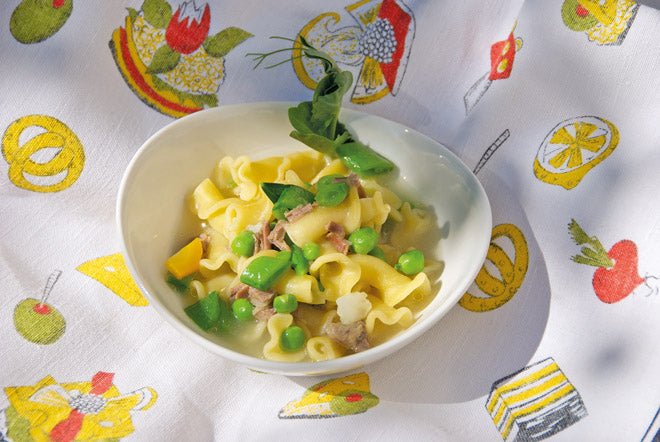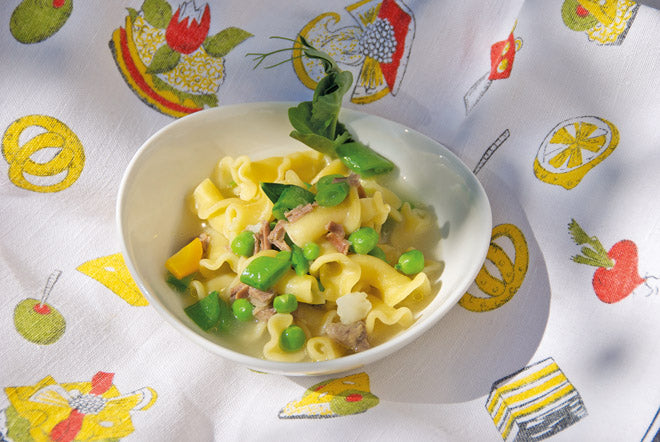
The best for the baby
The best for the baby
New guide for proper nutrition during pregnancy and afterwards
"Eating properly during pregnancy and breastfeeding" by Prof. Dr. Ingrid Gerhard and Dr. Barbara Rias-Bucher provides valuable tips for a varied, wholesome diet. The recipes for small and large dishes as well as baby food are optimally tailored to the changing nutritional and vital substance requirements of mother and child.
Holistic nutritional concept
Carrying a child inside you and ultimately giving birth to it is the most profound experience that women can have. The expectant mother is no longer just responsible for herself, but becomes the most important person for the new life for which she is literally sharing her own life. During pregnancy, neural pathways, hormonal control circuits and metabolic pathways are created that are intended to function throughout life. And there is a unique opportunity and power to positively influence this development through your personal lifestyle.
In their guide, gynecologist Prof. Dr. Ingrid Gerhard and nutrition expert Dr. Barbara Rias-Bucher present a holistic nutritional concept that provides mothers during pregnancy with everything they need for their well-being and for the development of their child. From the very beginning, the child is "instilled" with a way of life that understands the individual biorhythm as part of the natural processes.
Eating well means eating naturally
Today, the only thing that matters in pregnancy nutrition is quality, not quantity. This means that a wide range of foods is needed that contain protein, complex carbohydrates and valuable fats and also provide as many different bioactive substances as possible. This mixed diet consists of vegetables and fruit, herbs and salad, grains and potatoes, pulses and soy. Dairy products and eggs, quality meat and fish are also included, and should come from animal husbandry that is appropriate for the species.
"A colorful variety on your plate guarantees you a high nutrient density, which is equally important for you and your baby," advise the authors. A balanced diet has a positive effect on the child's health via the placenta and also influences its later sense of taste via the amniotic fluid. This means that even during pregnancy, the child is exposed to a natural, gentle and even healing diet that will benefit it throughout its life.
Balance for mother and child
A diet based on plant products is also optimal during pregnancy and breastfeeding because it ensures a harmonious acid-base balance. The blood is alkaline with a pH value between 7.35 and 7.45, and the baby develops in alkaline amniotic fluid with a pH value between 8 and 8.5. Therefore, alkaline foods such as vegetables, fruit, herbs, lettuce and potatoes play an important role in maintaining a healthy balance. However, for a complete and balanced diet that satisfies and promotes the healthy development of the child, whole grains, millet, polenta, yoghurt, natural whey, pulses, organic tofu, nuts and seeds are also needed. Nuts and vegetable oils in particular ensure the supply of important omega-3 fatty acids.
In addition to nutrition, there are other building blocks for the healthy development and growth of the baby that need to be incorporated into the daily routine. Because the baby also benefits from the happiness hormones, the balance, and the oxygen that the mother sends to her child through movement and conscious breathing.
Book tip:
Prof. Dr. Ingrid Gerhard / Dr. Barbara Rias-Bucher: Eating properly during pregnancy and breastfeeding - tips for a varied, wholesome diet - 70 recipes for simple mini and maxi dishes - 30 recipes for savory and sweet baby food. Mankau Verlag, 1st edition October 2016, flexi-brochure, full color, 174 pages, 15.95 euros (D) / 16.40 euros (A), ISBN 978-3-86374-308-6.
Link recommendations:
More information on the guide "Eating properly during pregnancy and breastfeeding"
To the reading sample in PDF format
More about the author Prof. Dr. Ingrid Gerhard
More about the author Dr. Barbara Rias-Bucher
To the Internet forum with the authors











